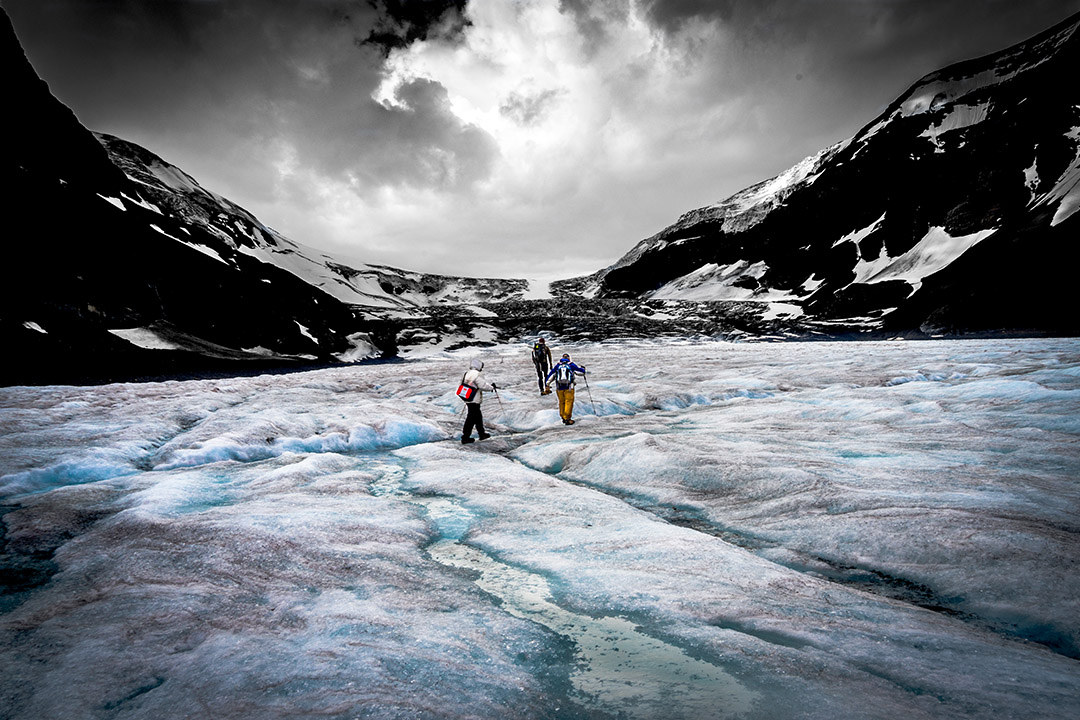
USask and NRCan sign MOU to advance national water security
At a special ceremony today, the University of Saskatchewan (USask) and Natural Resources Canada (NRCan) signed a five-year Memorandum of Understanding (MOU) that will strengthen the country’s commitment to managing its freshwater resources in a time of rapid climate change.
The partnership involves USask-led Global Water Futures (GWF)—the world’s largest university-led freshwater research program—and NRCan. Through initiatives such as collaborative research projects, personnel exchanges, and exchanges of scientific information and technical data, the goal is to advance water research in critically important areas including climate change impacts on ecosystems, river basins, water bodies and natural resources development.
“The water issues that Canada is facing are complex and require a multi-sectoral and interdisciplinary approach,” said USask Vice-President Research Karen Chad. “This partnership involving our pan-Canadian Global Water Futures program will bring together universities, government departments and other partners to help solve these daunting challenges and advance our shared goal of water security and sustainability.”
The MOU is a direct outcome of discussions between GWF and NRCan at the GWF Inaugural Science Meeting in June 2018 where the need and opportunity for greater collaboration was identified.“This MOU represents an opportunity for NRCan to bring its expertise in geology, forestry, mapping and Earth observation to the table in our collaboration with the academic community on water,” said Prashant Shukle, director general of the Canada Centre for Mapping and Earth Observation. “We look forward to taking this pan-Canadian approach to working together to advance our understanding of Canada’s water resources and linking it to our policy and science.”
It’s anticipated that the collaboration will help inform policies on climate change adaptation and the assessment and monitoring of natural hazard risks including floods, droughts and wildfires. The research will examine water in its many forms—in Canada’s mountains, glaciers, permafrost areas, forests, peatlands, wetlands, and groundwater—that make up the country’s water environment. The research will involve next-generation research tools that include the use of artificial intelligence, drones, satellites, and big data platforms to support and predict future water issues.
Through the MOU, the parties affirm that a mutual priority is enhanced consultation and engagement with Indigenous peoples and the integration of Indigenous traditional knowledge with science to inform water issues.
“Much of Canada has abundant water. Despite this abundance, we have developed pervasive and expensive water problems due to climate change and insufficient water protection measures. Our future water security has become uncertain,” said Dr. John Pomeroy (PhD), GWF director and USask Canada Research Chair in Water Resources and Climate Change.
“This MOU and the relationships that can be built through it across Canada are critically important to predicting and managing water-related threats. With our key GWF partners University of Waterloo, McMaster University, and Wilfred Laurier University, we are delighted to be a part of this.”
The next step, through a workshop this week, is to identify specific areas of research to pursue collaboratively and to develop more specific joint project proposals.

